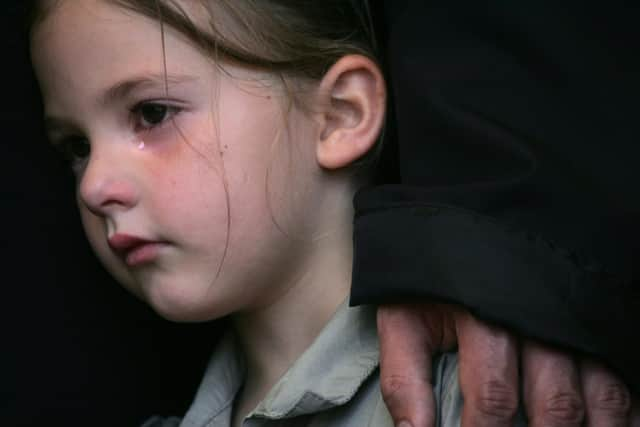Child neglect will be tackled in Doncaster with a first of its kind programme aimed at helping vulnerable children
and live on Freeview channel 276
South Yorkshire Police and the NSPCC have come together to develop the Child Matters programme which is the first of its kind.
The two organisations have worked together to create a bespoke programme which will assist and support staff in identifying, intervening and taking appropriate action in cases of child neglect to reduce the risk of babies, children and young people from experiencing further harm.


Advertisement
Hide AdAdvertisement
Hide AdThe NSPCC delivered four days of training to 34 police staff who will now go on to train 2,500 colleagues around a new tool called SHAREDD designed to identify and evidence neglect.
The SHAREDD tool is based on the NSPCC’s Graded Care Profile Two (GCP2), which is used by professionals working with children and families across the UK to identify and measure the quality of care provided by a parent and carer, making it easier for families to understand a practitioner’s concerns and with the right support can make positive changes to improve outcomes for children.
Samantha Kyriacou, GCP2 Implementation Manager for the NSPCC, said: “It is very welcome that South Yorkshire Police recognise the importance of knowing the signs of neglect and empowering their staff to have the confidence and terminology to speak up if they have concerns about a child.
“Child neglect is preventable, but we know, at the NSPCC, that this needs action from everyone - parents, communities, universal services and government, working together to help children thrive.
Advertisement
Hide AdAdvertisement
Hide Ad“The SHAREDD tool will support the force and agencies in South Yorkshire to effectively work together, with a common understanding of the complexities of neglect, which in turn will result in better outcomes for vulnerable children.”
The Child Matters programme for South Yorkshire Police supports a shared understanding and language for neglect across the four local authority areas - Rotherham, Barnsley, Sheffield and Doncaster - all of which will soon be using GCP2 in their practice.
The NSPCC has also supported the force in the review of the Vulnerable Child recording form and their implementation plan to ensure the SHAREDD tool and training is fully embedded in practice.
Neglect can lead to lasting damage in children and young people.
Advertisement
Hide AdAdvertisement
Hide AdSadly it can take many forms but the SHAREDD tool will help support police staff working with safeguarding professionals or in the community to understand the complexities of neglect with proven better outcomes for children and their families.
Detective Sergeant Kath Coulter, said: “Our work with the NSPCC and other partners has developed the bespoke SHAREDD tool that will support our officers and staff in not only recognising neglect but also how to articulate what they see.
“The tool will allow officers to provide a clear picture of not only the conditions that children are living in but also how they are being treated by their parents and carers.
“Understanding and tackling neglect is vital to child protection and to reducing vulnerabilities linked to abuse in the form of criminal and sexual exploitation and missing from homes.
Advertisement
Hide AdAdvertisement
Hide Ad“Neglect is a serious criminal offence in itself; the consequences of neglect mean that children are even more vulnerable to other forms of abuse and exploitation.”
